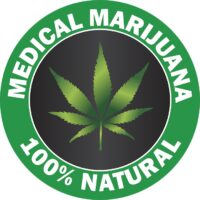Medical Marijuana
Updated March 10, 2024

As a part of our Holistic Program, Dr. Cheikin uses various herbal remedies to help with your healing. He will support your use of Medical Marijuana (MM) as a part of your healing protocol. He does NOT see patients exclusively to provide a MM card. If you are a current patient, Dr. Cheikin can certify the need for medical marijuana with the Pennsylvania Department of Health. You will need a doctors note confirming that you have one or more of the 23 eligible diagnoses listed to the right. If you are receiving treatment from Dr. Cheikin for an eligible condition, he can provide both the doctor’s note and certification.
Fees (Current Patients Only)
Initial certification (in-person Zoom evaluation): $150
Follow-up certification within 15 months: $125
Discount available for seniors and those with hardship.
Insurance does not cover this fee.
Requirements for Medical Marijuana Card
- Must be at least 18 years of age.
- Must be a legal resident of Pennsylvania and provide proof of residency.
- Must register with the Pennsylvania Department of Health.
- Must be diagnosed with one of the 23 qualifying conditions (to the right) by a licensed practitioner.
- Must receive certification from an approved practitioner after an in-person examination.
Application Steps
- Go to the Patient and Caregiver Registry and fill out your information to create a patient profile.
- Obtain a note from a licensed practitioner that you suffer from one of the 23 qualifying medical conditions.
- Have an in-person (or Zoom) evaluation by Dr. Cheikin who then can provide Certification to the Pennsylvania Department of Health if you meet the criteria for the Medical Marijuana Card.
- Return to the Patient and Caregiver Registry and pay a $50 fee to obtain a medical marijuana card.
- The card will take approximately 30 days to be issued and received.
- Visit a Dispensary (see below) with your new ID card!
How Best to Take Medical Marijuana
This article suggests that extracted products can contain solvents and the plants can contain pesticides and organisms. The best ways to use marijuana are vaping, CO2 extraction and filtered-water pipe.
What Should We Tell Our Patients About Marijuana (Cannabis indica and Cannabis sativa).2016
Local Dispensaries 1
Plymouth Meeting
https://www.verilife.com/pa/menu/verilife-plymouth-meeting-pa
The Apothecarium Dispensary 420 Plymouth Road Plymouth MeetingPA 19462 484-531-4420
https://apothecariumpa.com/plymouth-meeting/
AYR Wellness **
Norristown
Liberty – Norristown 2030 West Main Street Norristown PA 19403 484-612-4520
https://www.libertydispensarypa.com
King of Prussia
Harvest of King of Prussia 826 W Dekalb Pike King of Prussia PA 19406 445-777-6106
www.harvesthoc.com
Keystone Shops – King of Prussia 367 S Henderson King of Prussia PA 19406 484-581-7189 https://keystoneshops.com
RISE – King of Prussia 445 West DeKalb Pike King of Prussia PA 19706 610-596-9266
www.risedispensaries.com
** new browser tab will open
Local Dispensaries 2
Montgomeryville
Ethos Pennsylvania – Montgomeryville 921 Bethlehem Pike MontgomeryvillePA 18936 267-857-7295
www.ethospa.com
Devon
Keystone Shops – Devon 420 West Lancaster Ave Devon PA 19333 484-581-7189
https://keystoneshops.com
Abington
TerraVida Holistic Centers – Abington 1626 Old York Road Abington PA 19001 215-366-5008 https://www.terravidahc.com
Elkins Park
Restore Integrative Wellness Center, LLC 8003 Old York Road Elkins Park PA 19027 215-709-2360 https://restoreiwc.com
Ardmore
Beyond Hello – Ardmore 39 Cricket Ave Ardmore PA 19003 610-471-1099
www.beyond-hello.com
** new browser tab will open
Related Links
Eligible Conditions
- Amyotrophic lateral sclerosis
- Anxiety disorders
- Autism
- Cancer, including remission therapy
- Crohn’s disease
- Damage to the nervous tissue of the central nervous system (brain-spinal cord) with objective neurological indication of intractable spasticity, and other associated neuropathies•
- Dyskinetic and spastic movement disorders
- Epilepsy
- Glaucoma
- HIV/AIDS
- Huntington’s disease
- Inflammatory bowel disease
- Intractable seizures
- Multiple sclerosis
- Neurodegenerative diseases
- Neuropathies
- Opioid use disorder for which conventional therapeutic interventions are contraindicated or ineffective, or for which adjunctive therapy is indicated in combination with primary therapeutic interventions
- Parkinson’s disease
- Post-traumatic stress disorder
- Severe chronic or intractable pain of neuropathic origin or severe chronic or intractable pain
- Sickle cell anemia
- Terminal illness
- Tourette syndrome

